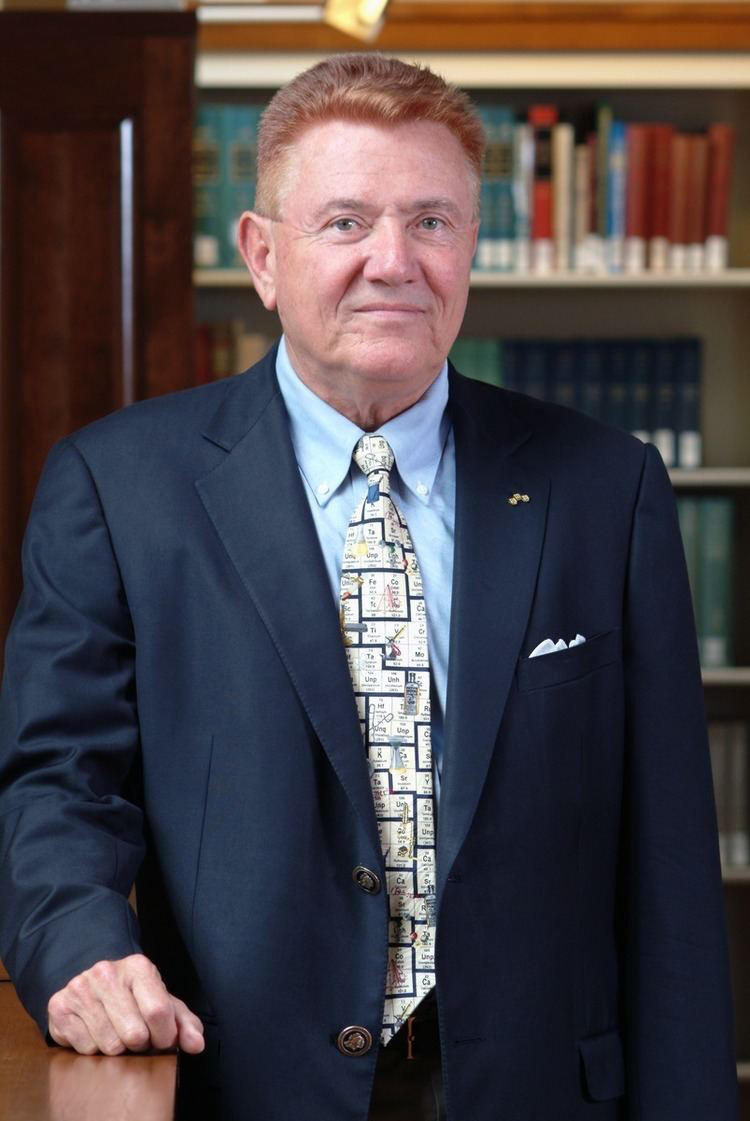UCI receives $1.5 million from philanthropist Roy Eddleman

Philanthropist Roy Eddleman has given $1.5 million to the UCI School of Physical Sciences to support the creation of a quantum science research institute.
Irvine, Calif., May 14, 2020 — A $1.5 million gift from philanthropist Roy Eddleman to the University of California, Irvine School of Physical Sciences will support the creation of a research institute focused on ushering in the future of quantum science.
The Eddleman Quantum Institute will be led by William Evans, Distinguished Professor of chemistry. Quantum science deals with nature at the atomic scale, and advances in the field have transformed – and will continue to transform – our world.
“If we could really capture the quantum world and understand it in a very deep way, it could enable so much,” said James Bullock, dean of UCI’s School of Physical Sciences. “We’re talking about changing the way people live by having super light materials, efficient fuels, etc.”
Brian Hervey, vice chancellor for university advancement and alumni relations, said: “Quantum science holds the promise of revolutionary strides in a host of fields, from technology to medicine and beyond. The UCI community is grateful to receive this support from Roy Eddleman as an expression of confidence that our scientists will make great breakthroughs in this area of research.”
The $1.5 million will fund postdoctoral and graduate student fellowships, scientific conferences where researchers can exchange and create ideas, and quantum research to help stimulate novel approaches to basic science. Bullock said that as the institute grows, UCI stands to transform into an institution where undergraduate students can major in the same quantum science fields that their professors are pioneering and defining.
“Quantum chemistry and quantum physics and quantum science are so incredibly different from anything that’s been done,” said Eddleman, who founded a biotech company called Spectrum Inc. “It desperately needs a fresh and brilliant approach from recruiting young people to go into these fields.”
Bullock added, “We can become a place that’s educating the generation of scientists who are really going to build this new technology, who are going to fuel this quantum revolution.”
Serendipitous start
The roots of the Eddleman Quantum Institute date to 2017, when Evans attended the Rare Earth Research Conference in Ames, Iowa, where he spoke to a reporter named Stephen Ritter, who wrote a story for Chemical & Engineering News that featured his quotes.
Evans is a chemist who researches rare earth elements, “the ones at the bottom of the periodic table that you never study in school,” he said.
These elements have applications in everyday life, he noted: The red color in smartphone screens comes from europium, while the green color comes from terbium. MRI machines use gadolinium, and cerium helps make cars’ exhaust fumes cleaner.
Eddleman read Ritter’s story and subsequently flew from Bel Air to meet Evans at UCI, where he told the professor that he wanted to back his work.
“It just kind of blew my socks off,” Evans said. “Here’s somebody who wants to put his support into my little niche of science and chemistry.”
Eddleman proposed that at the next rare earth elements meeting he could host a “little mini conference,” Evans recalled, for both rare earth element and quantum scientists.
“Roy’s idea was that if you bring in bright people and put them together in a comfortable, enjoyable environment, things happen,” Evans said.
And he was right. Collaborations ignited. While planning the conference – which took place in 2018 at Eddleman’s chateau in Normandy, France – Evans met with Wilson Ho, UCI’s Donald Bren Professor of Physics & Astronomy and Chemistry, to identify quantum scientists who also study rare earth elements. Ho gave him a list of names and, as a result of their meeting, collaborative research efforts began.
This led to Evans, Ho and Ruqian Wu, a UCI professor of physics & astronomy, acquiring a $2.1 million grant from the U.S. Department of Energy to research how magnetic molecules might store information at much greater capacities than currently possible.
“It proved the point that if you get different people together in different areas of science and they start talking to each other, they might find overlaps they didn’t know about,” Evans said.
“Just creating a nexus around a subject of common interest can spark all kinds of advances, and that was an insight Roy had,” Bullock said. “With his initial gift, we can begin to turn Irvine into a place that is known for and seeds these multidisciplinary projects in the broad realm of quantum science that create breakthroughs just from the kinds of people who’re working together.”
About UCI’s Brilliant Future campaign: Publicly launched on Oct. 4, 2019, the Brilliant Future campaign aims to raise awareness and support for UCI and UCI Health. By engaging 75,000 alumni and garnering $2 billion in philanthropic investment, UCI seeks to reach new heights of excellence in student success, health and wellness, research and more. Learn more by visiting www.brilliantfuture.uci.edu.
About the University of California, Irvine: Founded in 1965, UCI is the youngest member of the prestigious Association of American Universities. The campus has produced three Nobel laureates and is known for its academic achievement, premier research, innovation and anteater mascot. Led by Chancellor Howard Gillman, UCI has more than 36,000 students and offers 222 degree programs. It’s located in one of the world’s safest and most economically vibrant communities and is Orange County’s second-largest employer, contributing $5 billion annually to the local economy. For more on UCI, visit www.uci.edu.
